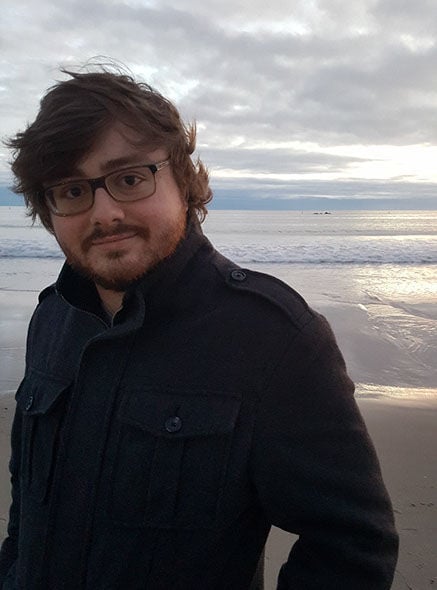It’s hard to imagine, but in the 25 years since the Tucson Symphony Orchestra started its Young Composers Project, it has never commissioned an alumnus to write a new work.
Until now.
Last year, the orchestra, to celebrate the inaugural season of its new conductor José Luis Gomez, commissioned a YCP alumnus to compose a special work for this weekend’s Classics concert. Anthony Constantino, class of 2012, is the first of many composing project alumni whose works will be presented by the orchestra, Gomez said this week as he unveiled the orchestra’s 2018-19 season.
The orchestra will bring back a young artist — cellist Nicholas Mariscal — and a composer — Sarah Olivo — next season, the orchestra’s 90th.
“We need to showcase this as not only our best-kept secret but our identity,” Gomez said of the YCP program.
Gomez will be at the podium this weekend when the orchestra performs the world premiere of Constantino’s “Luminosity’s Witness” to open “Rachmaninoff Rhapsody,” a concert that also features the Tucson debut of Ukranian pianist Vadym Kholodenko, the 2013 Van Cliburn Gold Medalist.
“I certainly hope this performance will set a pattern for the Tucson Symphony to really start taking advantage of the wonderful talents they are creating with YCP,” said Constantino, 23, who graduated from University High School in 2012 and went on to earn his music degree from New York’s Manhattan School of Music. He is now studying for his master’s/Ph.D. at the University of California at Los Angeles.
We caught up with Constantino to talk about the composing opportunities he has had since he finished the TSO composers project and the thrill of writing a piece for his hometown orchestra.
“I’ve been very fortunate in that I’ve had a number of opportunities to write orchestral music in particular,” he said, including a 2015 commission that was performed by the Kennett Symphony Orchestra under the baton of longtime TSO guest conductor Michael Hall. He also contributed a work commissioned by Waldland Ensemble that for the group’s 2016 CD “American Voices.”
“That was an exciting opportunity. They took this program and performed it at a number of universities and they ended up at Weil Hall at Carnegie and did the real premier,” Constantino said. “That was a great opportunity.”
How the TSO commission came about: “It all mystifies me a little bit. When Mark Blakeman was the president, they asked me to come in and talk to them. They pitched a commission and they wanted it to be about Tucson. That was really where the idea started.”
When I think of Tucson, I think of nature: “I thought about it for quite a while and the first thing that came to mind for me was nature. So many people live in Tucson because of the nature scene nd how great it is. For me the first thing that came to mind is the great sunsets. My parents’ house is kind of on top of a hill and as a kid I would watch the sunsets. Having lived on the East Coast and West Coast, I have never seen sunsets like the ones we have in Tucson.”
Expressing the beauty in melody: “One of the main harmonic components in the piece is a progression from sunrise to sunset. It opens with desert music that feels like the desert with chords and harmonies representing the heat of the sun. A shaker is there coming back at certain intervals that symbolizes the finely ground sand gravel you find in Sabino Canyon. At the beginning of the piece, a lot of it sounds pointy and spiky, but as the piece progresses as we move into the sunset, the person on the hike gets lost in the sunset and the music really takes a big shift to something a lot more lush and beautiful while still using a lot of the same thematic material. As sunset fades and nighttime (descends), a cello quartet plays, little chords in the piano and vibraphones represent stars and little hushed noises of nature.”
On being the first YCP alumnus commissioned: “It’s an incredible honor to be the first and I know Maestro Gomez ... is very excited to start doing this to start commissioning alumni more. I am extremely honored to be the first one and I really think that that was ‘the right time, right place’ thing.”





